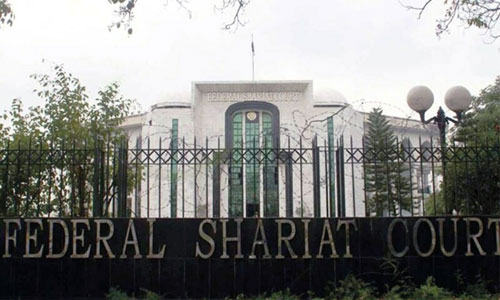Observer Report Islamabad
The government called upon the Federal Shariat Court (FSC) on the other day to exercise “judicial restraint” by leaving it to the executive and the legislature to amend laws on Riba (interest) and other financial rules in keeping with Islamic traditions.
Attorney General Khalid Jawed Khan told the FSC that parliament, the executive and other organs of the state were trying to thrash out a consensus on measures needed to make banking and financial laws conform to Islamic injunctions.
The Supreme Court had remanded the Riba case back to the Shariat Court in 2002, asking it to review its 1992 judgement which declared that interest, or riba, was repugnant to Islam.
Banks and other financial institutions brought a total of 67 appeals against the judgement before the Shariat appellate bench of the Supreme Court.
The bench upheld the FSC verdict and directed the government to amend all banking laws and statutes in accordance with it.
The parties concerned then filed a review petition with the Supreme Court, which remanded the case back to the FSC in 2002 for reconsideration.
Dr Babar Awan, Adviser to the Prime Minister on Parliamentary Affairs, is expected to appear before the FSC on Thursday as amicus curiae to assist it in understanding banking practices across the world. Anwar Mansoor, a former attorney general, will also assist the FSC.
In his submission, the attorney general (AGP) stated that a robust interest-free banking sector had evolved over the last three decades and was providing services to clients.
He said the legislature had carried out amendments in financial laws to make the Islamic mode of banking practicable, citing changes in the State Bank of Pakistan Act of 1956 and the Banking Companies Ordinance of 1962.
The AGP argued that instruments in the Islamic mode now accounted for 17 per cent of assets with banks while in terms of deposits, the share was over 18 per cent.
At present five Islamic banks are operating in the country while 17 other banks are providing Shariah-compliant products and services through a network of 3,456 branches, the AGP informed the Shariat Court.
“Any Pakistani desirous of engaging in banking and other financial transactions in accordance with religious injunctions can do so as Islamic banking is thriving in the country,” Khalid Jawed Khan said.










